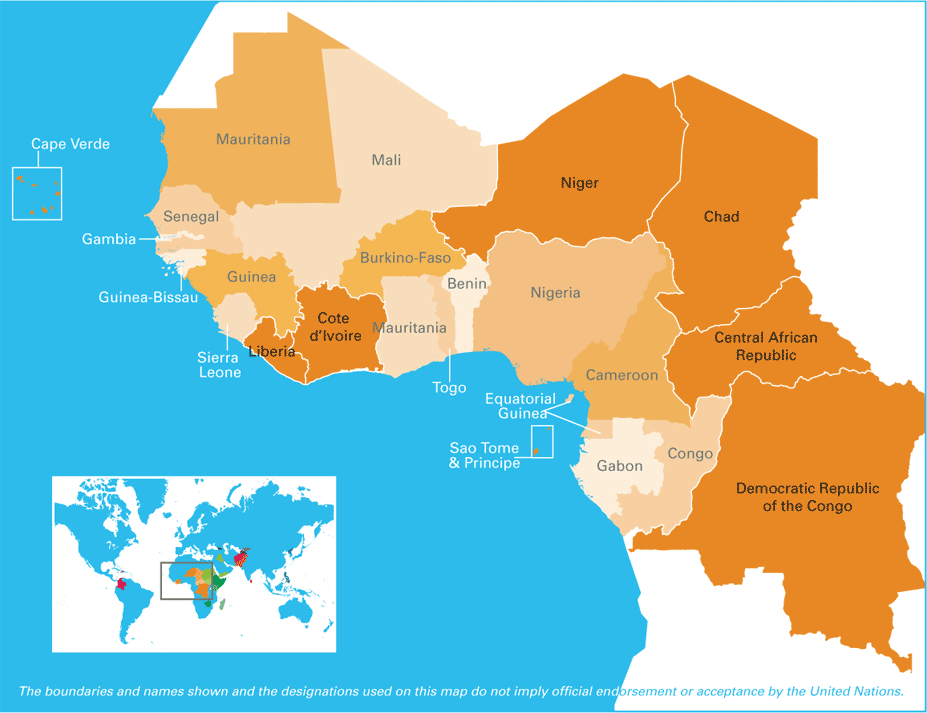U.S.: Relatively few public LGBT abuses in central Africa
Colin Stewart is a 45-year journalism veteran living in Southern…

Lesbian, gay, bisexual and transgender (LGBT) people in central Africa have a chance to live their lives relatively free of obvious public repression, at least compared to LGBT people in more publicly homophobic African nations, according to the accounts recently released in human rights reports from the U.S. Department of State.
That even applies to central African countries where same-sex activity is a criminal offense.
According to the reports that apply to central African nations, LGBT people in the Democratic Republic of the Congo suffered most from police harassment, but even there the government reportedly is working to reduce anti-gay stigma and improve health care for men who have sex with men.
These are excerpts from the reports about the Central African Republic, Chad, the Democratic Republic of Congo, and the Republic of the Congo:
Central African Republic
The penal code criminalizes consensual same-sex sexual activity. The penalty for “public expression of love” between persons of the same sex is imprisonment for six months to two years or a fine of between 150,000 and 600,000 CFA francs ($300 and $1,200). When one of the participants is a child, the adult may be sentenced to two to five years’ imprisonment or a fine of 100,000 to 800,000 CFA francs ($200 and $1,600); however, there were no reports that police arrested or detained persons under these provisions.
While there is official discrimination based on sexual orientation, there were no reports of the government targeting gays and lesbians. However, societal discrimination against lesbian, gay, bisexual and transgender persons was entrenched, and many citizens attributed the existence of homosexuality to undue Western influence. There were no known organizations advocating or working on behalf of the lesbian, gay, bisexual, or transgender persons.
Chad
Discrimination, Societal Abuses, and Trafficking in Persons:
Although the constitution and law prohibit discrimination based on origin, race, gender, religion, political opinion, or social status, the government did not effectively enforce these provisions. The law does not address discrimination based on sexual orientation or gender identity.
Societal Abuses, Discrimination, and Acts of Violence Based on Sexual Orientation and Gender Identity:
The law prohibits but does not define “unnatural acts,” and there was no evidence that the law was used against lesbian, gay, bisexual, and transgender (LGBT) persons during the year. No specific laws apply to LGBT persons. There were few reports of violence or discrimination against LGBT persons, in large part because most individuals were discreet about their sexual orientation due to social and cultural strictures against homosexuality. There were no LGBT organizations in the country.
Democratic Republic of the Congo
While there are no laws specifically prohibiting homosexuality or homosexual acts, individuals engaging in public displays of homosexuality were subject to prosecution under public decency provisions in the penal code and articles in the law on sexual violence. Homosexuality remained a cultural taboo, and harassment by SSF [state security forces] was believed to have continued. The Ministry of Health actively worked with LGBT groups in a nondiscriminatory fashion to reduce the stigma and prevent new HIV infections among men who have sex with men.
Republic of the Congo
The constitution prohibits discrimination based on, sexual orientation. There was a small openly gay or lesbian community due to the social stigma associated with consensual same-sex sexual conduct. A law promulgated during the colonial era and still in force prohibits homosexual conduct and makes it punishable by up to two years’ imprisonment; however, the law was rarely enforced. The most recent arrest under this law was in 1996.
There were no known cases of violence against gays, lesbians, or transgender individuals during the year. Although homosexual activity is generally stigmatized by society, overt intimidation was not believed to be a factor in preventing reports of incidents of abuse.
There was no known advocacy group or organization representing the interests of gays, lesbians, or transgender individuals in the country, and homosexuality remained a private subject.
The full reports on human rights in those countries are available on the department’s website and at www.humanrights.gov. The sections those reports that are devoted to issues of sexual orientation and gender identity were compiled in PDF format by the Council For Global Equality.


